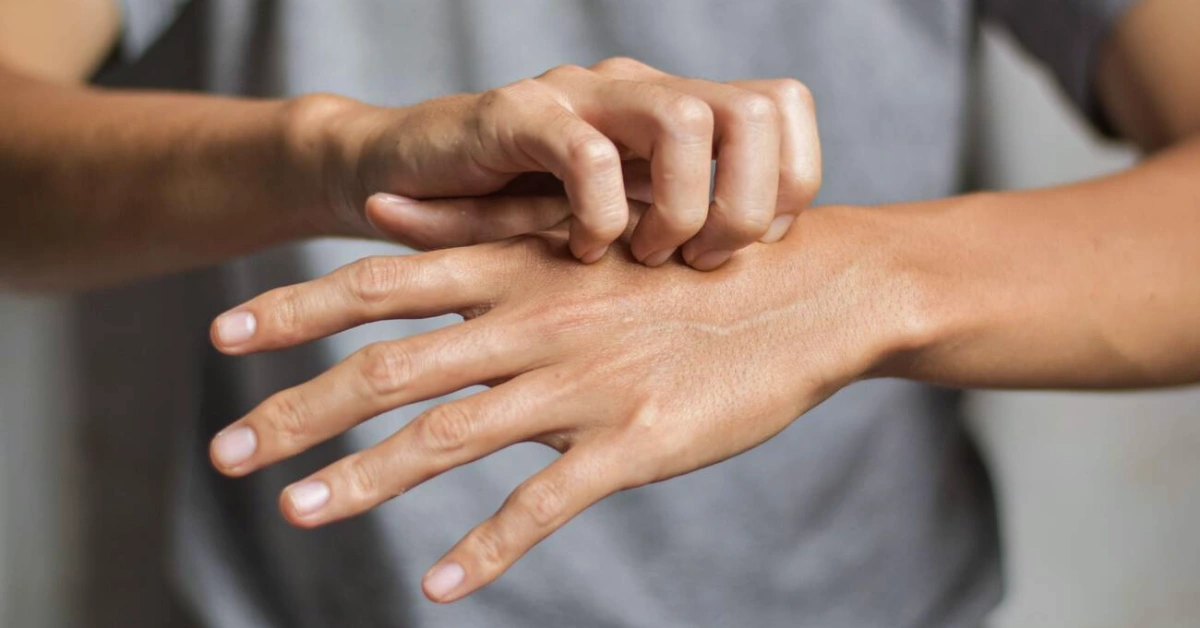Fungal infections are a common skin problem that can cause discomfort, itching, and unsightly rashes. These infections occur when fungi, which are naturally present on our skin, multiply and overgrow due to various factors. Treating fungal infections promptly is crucial to prevent them from spreading and causing further complications. In this article, we’ll explore the symptoms, causes, and natural remedies for curing fungal infections on the skin at home.
Key Takeaways
- Fungal infections can cause redness, itching, peeling, and cracking of the skin in various body areas.
- Warm, humid environments, weakened immune systems, and poor hygiene can contribute to the development of fungal infections.
- Natural remedies such as tea tree oil, apple cider vinegar, and coconut oil can help alleviate fungal infections at home.
Symptoms of Fungal Infection on skin
Fungal infections can manifest in different ways depending on the type of fungus and the affected body area. Common symptoms include:
- Redness and irritation of the skin
- Intense itching or burning sensation
- Peeling, flaking, or cracking of the skin
- Circular rashes with raised edges
- Blisters or pustules
Fungal infections can appear in various areas of the body, such as the feet (athlete’s foot), groin (jock itch), and nails (onychomycosis). It’s essential to identify the symptoms early and take action to prevent the infection from spreading.
Also Read: How To Know If Toenail Fungus Is Dying? A Complete Guide!
What causes fungal infections?
Several factors can contribute to the development of fungal infections on the skin:
- Warm and humid environments: Fungi thrive in warm, moist conditions, making areas like locker rooms, swimming pools, and sweaty shoes ideal breeding grounds.
- Weakened immune system: People with compromised immune systems due to illnesses, medications, or stress are more susceptible to fungal infections.
- Poor hygiene: Not washing regularly, wearing tight or damp clothing, and sharing personal items like towels or razors can increase the risk of fungal infections.
- Contagiousness: Some fungal infections, such as athlete’s foot, can be easily spread from person to person through direct contact or contaminated surfaces.
How to cure fungal infection on skin naturally at home?
While antifungal medications are available, many people prefer to try natural remedies first. Here are some effective ways to treat fungal infections at home:
- Tea tree oil: This essential oil has powerful antifungal properties. Mix a few drops of tea tree oil with a carrier oil like coconut oil and apply it to the affected area twice daily.
- Apple cider vinegar: The acidity of apple cider vinegar helps create an inhospitable environment for fungi. Mix equal parts of water and apple cider vinegar, and apply the solution to the infected skin using a cotton ball. Let it dry before rinsing.
- Coconut oil: Coconut oil contains lauric acid, which has antifungal properties. Apply a thin layer of coconut oil to the affected area and let it absorb into the skin. Repeat this process two to three times a day.
- Garlic: Crush a few cloves of garlic and mix them with carrier oil. Apply the mixture to the infected skin and leave it on for 30 minutes before washing it off. Repeat daily until the infection clears.
- Maintain good hygiene: Keep the affected area clean and dry. Wash the skin regularly with mild soap and pat dry thoroughly. Avoid wearing tight or damp clothing, and change out of sweaty clothes promptly.
How to prevent fungal skin infections?
Prevention is key when it comes to fungal skin infections. Here are some tips to reduce your risk:
- Wear breathable clothing: Choose loose-fitting, breathable fabrics like cotton to allow air circulation and reduce moisture buildup.
- Keep skin dry: After showering or swimming, dry your skin thoroughly, especially in areas prone to fungal infections like between the toes.
- Avoid sharing personal items: Don’t share towels, razors, or other personal items that can transfer fungi from one person to another.
- Protect your feet: Wear flip-flops or sandals in public showers, locker rooms, and pool areas to avoid contact with contaminated surfaces.
- Boost your immune system: Maintain a healthy lifestyle by eating a balanced diet, getting enough sleep, and managing stress to keep your immune system strong.
Conclusion
Fungal skin infections can be annoying and uncomfortable, but with the right approach, you can effectively treat them at home using natural remedies. By understanding the symptoms, causes, and preventive measures, you can take control of your skin health and keep fungal infections at bay. Remember to maintain good hygiene, keep the affected area clean and dry, and try natural remedies like tea tree oil, apple cider vinegar, and coconut oil. If your symptoms persist or worsen, don’t hesitate to consult a healthcare professional for further guidance.
Read More: Hydrogen Peroxide For Toenail Fungus: Is It An Effective Solution?
FAQs
A: With consistent treatment, most fungal skin infections start to improve within a week, but complete healing may take several weeks.
A: Yes, over-the-counter antifungal creams can be effective in treating mild to moderate fungal skin infections. Follow the instructions on the package carefully.
A: Some fungal skin infections, like athlete’s foot, can be contagious and spread through direct contact or contaminated surfaces. It’s essential to avoid sharing personal items and to practice good hygiene.
A: If your symptoms are severe, persist despite home treatment, or spread to other body areas, it’s best to consult a healthcare professional for proper diagnosis and treatment.
Citations:
- “Skin Fungal Infections: MedlinePlus Medical Encyclopedia.” MedlinePlus, U.S. National Library of Medicine, 2 Feb. 2019, medlineplus.gov/ency/article/000880.htm

